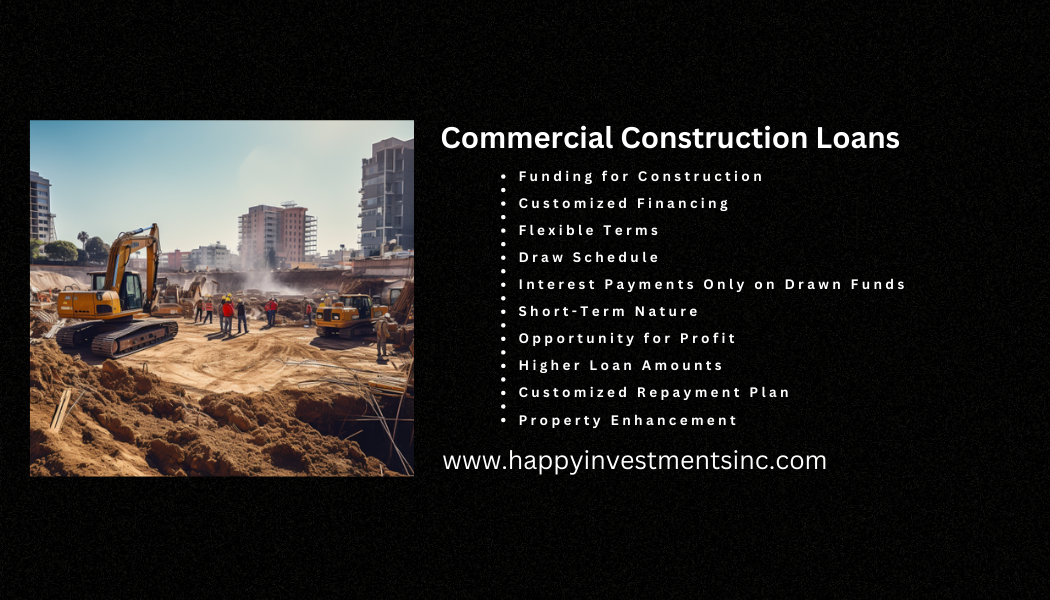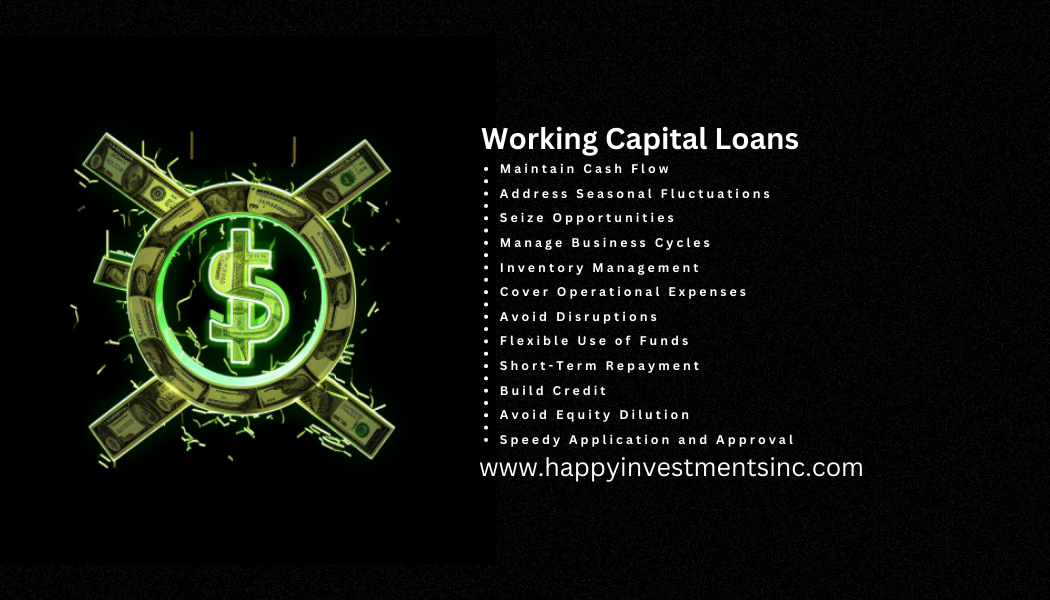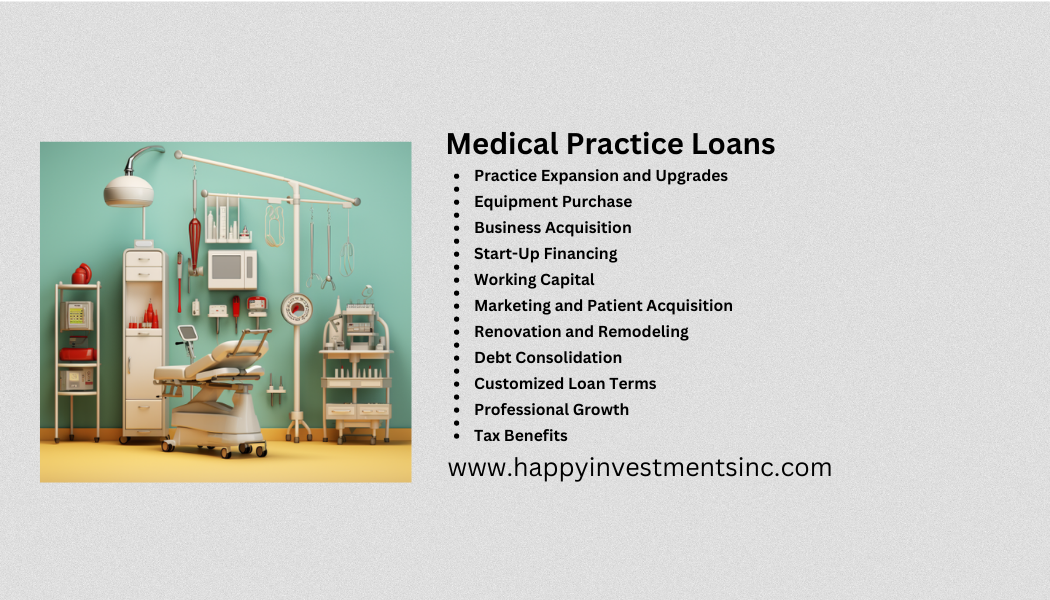 Commercial Real Estate Loans are financial instruments designed to supply funding for different types of industrial property acquisitions, advancements, and restorations. These loans are generally secured by the home itself and are an important resource for organizations and financiers wanting to expand or improve their real estate holdings. Different sort of Commercial Real Estate Loans consist of:
Commercial Real Estate Loans are financial instruments designed to supply funding for different types of industrial property acquisitions, advancements, and restorations. These loans are generally secured by the home itself and are an important resource for organizations and financiers wanting to expand or improve their real estate holdings. Different sort of Commercial Real Estate Loans consist of:
1.Traditional Commercial Mortgages: These loans operate likewise to property home loans, where the borrower receives a lump sum in advance and pays back the loan quantity along with interest over a given duration. They are commonly utilized for buying or re-financing properties such as office complex, retail centers, and storage facilities.
2.SBA 7( a) Loans: Offered by the Small Business Administration (SBA), these loans offer funding to small companies for real estate acquisitions, building, or refinancing. They frequently come with favorable terms and lower deposit requirements.
3.Commercial Construction Loans: These loans are created to fund the building and construction of new business residential or commercial properties or major restorations of existing ones. The funds are disbursed in stages as the construction advances.
4.Bridge Loans: Bridge loans offer short-term funding to bridge the gap in between immediate financing requirements and longer-term financing services. They are frequently utilized for time-sensitive deals or when a residential or commercial property requires renovations before it can qualify for irreversible funding.
5.Commercial Equity Loans: Also known as equity lines of credit, these loans enable property owners to tap into their property’s equity to fund various organization needs, such as growth, working capital, or improvements.
6.CMBS Loans (Commercial Mortgage-Backed Securities): These loans include packaging a pool of commercial realty loans into securities that are sold to investors. The earnings created from the underlying loans works as collateral for the securities.
7.Hard Money Loans: These are short-term, high-interest loans typically used by investor for fast acquisitions or to take advantage of time-sensitive chances.
8.Mezzanine Loans: Mezzanine financing sits between senior financial obligation and equity in a capital stack. It’s a way to protect extra funds utilizing the home as security, often used for advancement projects.
9.HUD/FHA Loans: Provided by the U.S. Department of Housing and Urban Development (HUD), these loans provide financing for multifamily homes, health care centers, and other types of industrial property projects.
10.Owner-Occupied Commercial Real Estate Loans: These loans are customized for companies that plan to occupy most of the residential or commercial property they purchase. They typically feature beneficial terms and lower down payment requirements.
Each type of Commercial Real Estate Loan serves different functions and includes varying terms, rate of interest, and eligibility requirements, enabling services and financiers to choose the funding choice that best aligns with their needs and goals.

 Commercial Hard Money loans are a type of financing utilized in realty and company ventures where traditional lending options might be unattainable due to the debtor’s credit history or the non-traditional nature of the task. These loans are usually secured by the value of the property or asset, instead of the borrower’s creditworthiness. Various type of Commercial Hard Money loans consist of:
Commercial Hard Money loans are a type of financing utilized in realty and company ventures where traditional lending options might be unattainable due to the debtor’s credit history or the non-traditional nature of the task. These loans are usually secured by the value of the property or asset, instead of the borrower’s creditworthiness. Various type of Commercial Hard Money loans consist of: A Commercial Bridge loan is a type of short-term funding solution developed to bridge the gap between instant capital needs and more long-term, long-lasting financing. It is typically utilized by companies and real estate investors to seize time-sensitive chances, address urgent monetary obligations, or facilitate residential or commercial property acquisitions. Commercial Bridge loans provide versatility and speed, allowing debtors to secure funds quickly while they deal with getting a more standard and sustainable financing source. There are numerous type of Commercial Bridge loans customized to different scenarios:
A Commercial Bridge loan is a type of short-term funding solution developed to bridge the gap between instant capital needs and more long-term, long-lasting financing. It is typically utilized by companies and real estate investors to seize time-sensitive chances, address urgent monetary obligations, or facilitate residential or commercial property acquisitions. Commercial Bridge loans provide versatility and speed, allowing debtors to secure funds quickly while they deal with getting a more standard and sustainable financing source. There are numerous type of Commercial Bridge loans customized to different scenarios: ommercial Construction loans are monetary instruments developed to money the advancement and construction of various kinds of commercial properties, varying from office buildings and retail centers to hotels and industrial facilities. These loans provide the essential capital to cover the expenses related to land acquisition, architectural preparation, building materials, labor, and other expenditures incurred throughout the building and construction process. Different sort of Commercial Construction loans include:
ommercial Construction loans are monetary instruments developed to money the advancement and construction of various kinds of commercial properties, varying from office buildings and retail centers to hotels and industrial facilities. These loans provide the essential capital to cover the expenses related to land acquisition, architectural preparation, building materials, labor, and other expenditures incurred throughout the building and construction process. Different sort of Commercial Construction loans include: The Small Business Administration (SBA) loans are financial assistance programs provided by the United States federal government to support and promote the development of small businesses. These loans are designed to provide economical funding choices to business owners and small business owners who might have trouble getting loans through standard channels due to different reasons, such as restricted security or credit rating. There are numerous kinds of SBA loans offered, each customized to specific service needs:
The Small Business Administration (SBA) loans are financial assistance programs provided by the United States federal government to support and promote the development of small businesses. These loans are designed to provide economical funding choices to business owners and small business owners who might have trouble getting loans through standard channels due to different reasons, such as restricted security or credit rating. There are numerous kinds of SBA loans offered, each customized to specific service needs: Business loans are financial plans where a lending institution provides funds to an organization entity to support its functional requirements, growth, or other tactical initiatives. These loans play an essential function in facilitating growth and keeping capital for services. There are numerous types of company loans tailored to different functions and debtor profiles:
Business loans are financial plans where a lending institution provides funds to an organization entity to support its functional requirements, growth, or other tactical initiatives. These loans play an essential function in facilitating growth and keeping capital for services. There are numerous types of company loans tailored to different functions and debtor profiles: Industrial Mortgage Loans New Hampshire is a mortgage secured by commercial real estate, for example, an office complex, shopping center, producing storage facility, or apartment or condo or apartment complex. Commercial mortgage loans are similar to basic mortgage; however instead of obtaining funds to buy house, you secure any land or property for company factors.
Industrial Mortgage Loans New Hampshire is a mortgage secured by commercial real estate, for example, an office complex, shopping center, producing storage facility, or apartment or condo or apartment complex. Commercial mortgage loans are similar to basic mortgage; however instead of obtaining funds to buy house, you secure any land or property for company factors.









